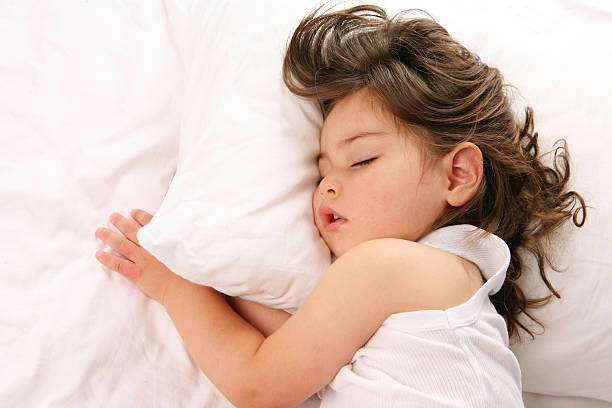7 Reasons for Sleeping Problems in Children
There are many reasons such as stress and sleep apnea that cause sleep problems in children. By treating these causes, you can ensure that your child sleeps soundly.
Tactics to regulate your children’s sleep
A healthy sleep has an extremely important place for both mental and physical development of children. In the development of children’s learning ability, their sleep should be uninterrupted, sufficient and of good quality. However, like adults, children can also have sleep problems for various reasons. Early diagnosis also facilitates treatment in children with sleep problems such as sleepwalking and sleep apnea.
Stress is nightmare
Nightmares, which are the sleep problems that force adults, are most common between the ages of 3-5. Factors such as stress, intense imagination, feeling of insecurity, unwanted changes in life (parent divorce and fights/home-school changing), traumatic events are some of the factors that increase nightmares.
Is he sleepwalking?
Sleepwalking, which is seen in 15 percent of children, usually starts between the ages of 4-8 and decreases towards adolescence. Although the eyes are open, the child does not remember them in the morning if he is not woken up, as he is in a heavy sleep period. It is also important to take precautions for the safety of the child.
Restless leg awakens from sleep
In this problem that interrupts sleep, pain, tingling, etc. in the legs can be experienced. unrest is happening. Restless legs syndrome is 5 times more common in children with iron deficiency. B12 deficiency and excessive coffee/cigarette consumption in adolescence also increase the risk of this syndrome.
What is a sleep terror?
Sleep terrors, also known as ‘night terrors’, are usually 2-3 days of sleep. occurs on time. Although the child wakes up crying in horror, he cannot remember the incident in the morning because he does not fully wake up. Night terrors last between 30 seconds and 3 minutes.
Don’t have dinner late
Excessive hunger or excessive satiety are factors that make it difficult to sleep. Therefore, dinner should not be close to sleep. Otherwise, in addition to giving energy, it can cause indigestion, gas problems and difficulty sleeping.
What causes sleep apnea?
Another sleep problem in children is sleep apnea. Sleep apnea, which means the temporary cessation of breathing during sleep, is often seen between the ages of 4-6. It is most commonly seen in children in case of tonsil, adenoid enlargement and overweight. Noisy snoring can lead to problems such as moodiness, fatigue, inattention and developmental delay, and even life-threatening.
Watch out for narcolepsy if suddenly asleep
Narcolepsy, an important sleep disorder, is sudden sleep attacks while awake during the day. The person suddenly falls asleep while talking or eating. Sometimes when he is very happy or sad, he may suddenly fall to the ground.
How is sleep arranged?
Set sleep times, set appropriate limits, and act decisively. Don’t give up on it.
If the child has sleep terrors and sleepwalking problems at certain times every night, wake the child 15 minutes / half an hour before the time comes and make him go back to sleep.
Put your child to bed at the same times every day, set aside enough time for your pre-sleep routine and include things your child loves during this time.
If your child comes to your bed at night when he wakes up, take him back to bed so that he does not become a habit. If he is afraid, stay with him and let him relax.
Nightmares may be caused by anything they experience during the day or something they watch on TV. Sometimes they may have nightmares for no reason. If your child wakes up at night saying that he is afraid, be sure to be there to comfort him and stay with him until he feels safe. If this happens every night, try to figure out if your child is acting this way to keep you close or if he’s really scared.
Do not go to bed hungry or overly full. Avoid nighttime stimulating foods such as chocolate.
Before going to sleep, organize activities and sleep ceremonies (telling a tale, singing a lullaby, etc.) where you can spend time with your family and calmly.
Make sure that the room is not too dark, the humidity and temperature of the environment are sufficient (18 degrees), the room is ventilated and there is no smoking in the room.
Do not use an electric blanket or hot water bottle on your bed.
Do not sleep in direct sunlight or near a heater.
